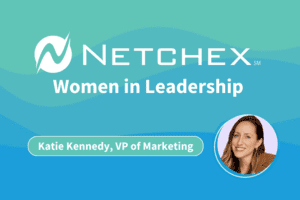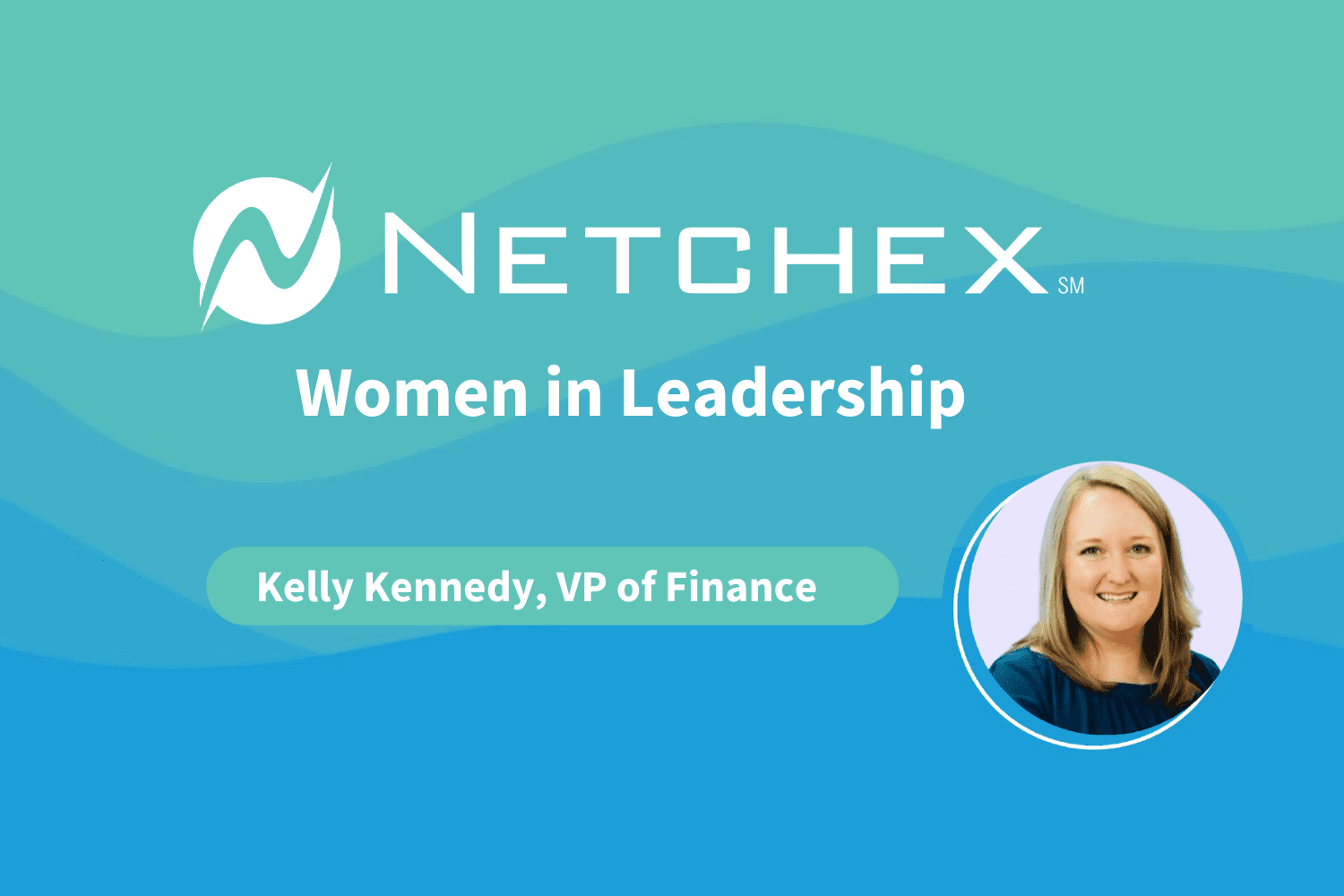Share
March is Women’s History Month. To mark this occasion, the Netchex Diversity, Equity, & Inclusion Council is honoring the many powerful women in leadership at Netchex who keep the ship afloat.

In our Netchex Women in Leadership series, we’ll hear from our executives and vice presidents about their career journeys, challenges, inspirations, and advice to others.
Next up is Kelly Kennedy, Netchex’s VP of Finance. We talked to her about her career journey, qualities most needed for leadership, and what she’s learned throughout her career.
Can you share a little background information about your current position?
I joined Netchex back in September 2023 as Vice President of Finance. My primary focus is financial planning and strategic finance. High level, I think of my role as managing both short and longer-term financial planning and supporting the ELT (executive leadership team) with financial analysis and insights to help drive decision-making.
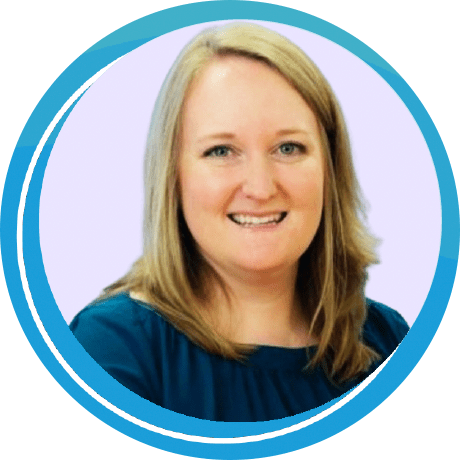
Are there any skills or qualities that you believe are crucial for success in an executive role?
Particularly when joining a new organization or moving into a new role, I like to spend a lot of time up-front developing cross-functional relationships. From my perspective, Finance as a function is most valuable where it can help inform business decisions. Taking the time to establish connections and build a network has a very high ROI, and I find that individuals who are willing to invest the time to do so have a lot of success.
Another skillset that’s very beneficial is the ability to make decisions or move forward, even if you don’t have all the information you need. In all our roles, we’re frequently asked to make calls with imperfect information. Some people are very uncomfortable with that, but in order to make progress, you need to be skilled in doing so. All we can ask is that you make the best decision with the info you have on hand, but also be willing to change that decision if new or better information comes to light. The most successful people are able to operate well in ambiguous environments.
Are you working on any exciting projects or initiatives currently, that you can share?
One of the workstreams I’m really focused on at the moment is figuring out how to automate manual tasks and free up more time within the finance and accounting organizations to create bandwidth for more strategic, forward-looking work. This is playing out in a couple of ways.
We just recently resourced a back-office R&D team focused on automating manual tasks within the banking function, who will eventually work to do the same for other internal teams like tax and service. Where there are Netchex product limitations that make the back-office functions difficult, we’re trying to find solutions. The manual work today takes an extraordinary amount of time and is very frustrating for the teams that deal it with. So, if we’re able to get a couple of quick solutions in place, I think it will free up a lot of time.
We’re also getting very close to implementing an FP&A (forecasting, reporting, annual planning) tech solution called Mosaic. Mosaic is a really interesting platform that pulls together information from multiple different pieces of our tech stack. We use Sage/Intacct for our accounting system, Salesforce is our CRM system, and Netchex houses all of our HRIS info today. In order to do a fulsome financial analysis, you often have to pull data from multiple source systems and then try to reconcile. It can get really unwieldy and take a lot of time. Mosaic sits on top and pulls information from throughout the tech stack, which should make some of the standard FP&A processes a lot smoother and more efficient.
Something that can plague women in leadership roles is imposter syndrome. Have you ever experienced imposter syndrome? And if so, how do you get past those negative thoughts of not being good enough?
Big time! I had a bout of imposter syndrome earlier this week, as a matter of fact. We were in a call with one of our potential banking partners. They were talking in great detail about Treasury solutions and investment management, which is not naturally part of my background. Half of the conversation, I felt like they were speaking a foreign language! I felt very out of my depth.
For me, when I step out of a meeting that like or find myself dealing with imposter syndrome, I try to remind myself that I’m not supposed to know everything. When you’re faced with a scenario you’re unfamiliar with, what’s important is to show a willingness to understand, learn more, and figure it out.
It’s also important to remember that everything takes time; you don’t wake up one day and find yourself having become a banking or treasury expert overnight. So, it’s important to be kind to yourself. Taking a step back and contextualizing what’s realistic in terms of expectations of yourself and expectations that others may have, is incredibly important to combat imposter syndrome.
Finding a good balance between having a successful career and managing family time can be difficult. What are some of the ways that you handle a good work-life balance as a woman in leadership?
For me, work-life balance is sacred. It’s incredibly important to me and always has been. I can’t bring my best self to work unless I’m maintaining a healthy balance. I’ve always set incredibly clear boundaries and communicated those boundaries to those I work with. The boundaries are intended to protect my energy, and it’s my expectation that my team is doing the same.
For me, I don’t have anything work-related on my personal devices. That’s just one example of my personal boundary, but I think everyone should determine what boundaries are necessary for them to feel really balanced and hold fast to that. Those boundaries enable me to be successful, prevent burnout, and feel like when I’m working, I’m really contributing and helping to drive value.
Boundaries look different for every person. For example, some folks want to log on late at night because they need more flexibility during the day, others love constant interaction. It’s a very personal decision. I would encourage everyone to really do some self-assessment and determine what do I want my boundaries to be, and how do I start communicating those?
Have you worked with any companies besides Netchex that have diversity, equity and inclusion councils or committees. If so, how do they benefit the workplace?
I’ve spent most of my career at much larger organizations that have pretty robust DE&I programs. I think the one that I’ve seen that’s best-in-class was when I was working for Gatorade. They have extraordinary support from leadership, so DE&I was truly part of the culture and the day-to-day operations, which I really appreciated.
I believe that a team or organization that lacks diversity in any dimension (gender, thought, background, religious affiliation, etc.) is always going to be less successful than a really diverse team. I believe having a strong DE&A initiative, with support from leadership and the organization, really helps foster a more collaborative and diverse workforce, which I believe is necessarily more successful.
What advice would you give other women who are starting their career journey and may not have a mentor or someone to help them navigate the path to leadership?
I’ve worked with a lot of people who have been early in their career, particularly women. The people that I’ve seen that are most successful share a couple of qualities: they’re solution-oriented, resourceful problem-solvers. Individuals with those qualities will find themselves being successful, regardless of the level of mentorship support they have.
A couple of key pieces of advice I would give:
- Remember that careers aren’t linear. A lot of people think of career progression as a ladder, where you move from one step to the next. I like to think of career progression as more of a jungle gym. Some of the most valuable roles I’ve had were when I moved into opportunities that weren’t necessarily something I saw on my forward progression path, but provided an opportunity to expand breadth or depth of understanding of a different part of the business. I think there’s a lot of value in moving in more non-traditional ways.
- I’ve learned not to take disrespect personally, and perhaps more importantly, that you don’t have to attend every conflict you’re invited to. Earlier in my career, I wasted a lot of energy on unnecessary drama or noise that wasn’t value-add. I would love to say that I never get annoyed or feel disrespected, but that’s not reality. But getting to a place where you don’t take that personally is really beneficial for your mental health and your success in any position.
Previous installments of the Women in Leadership series:
Discover how your company can empower women in the workplace from Netchex’s women in leadership:
- 10 Substantial Ways to Empower Women in the Workplace
- Addressing Gender Inclusivity in the Modern Workplace
- How Can HR Help Support and Retain Working Mothers?
Industry news & tips sent straight to your inbox!
Enter your email below to subscribe to industry news, product updates, and tips.
Related articles
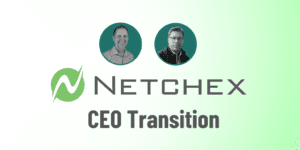
Netchex Founder-CEO Shifts Role and Welcomes New CEO
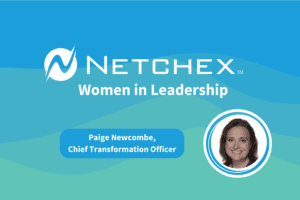
Netchex Women in Leadership: Paige Newcombe, Chief Transformation Officer
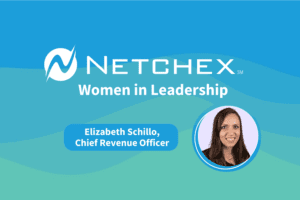
Netchex Women in Leadership: Elizabeth Schillo, Chief Revenue Officer
